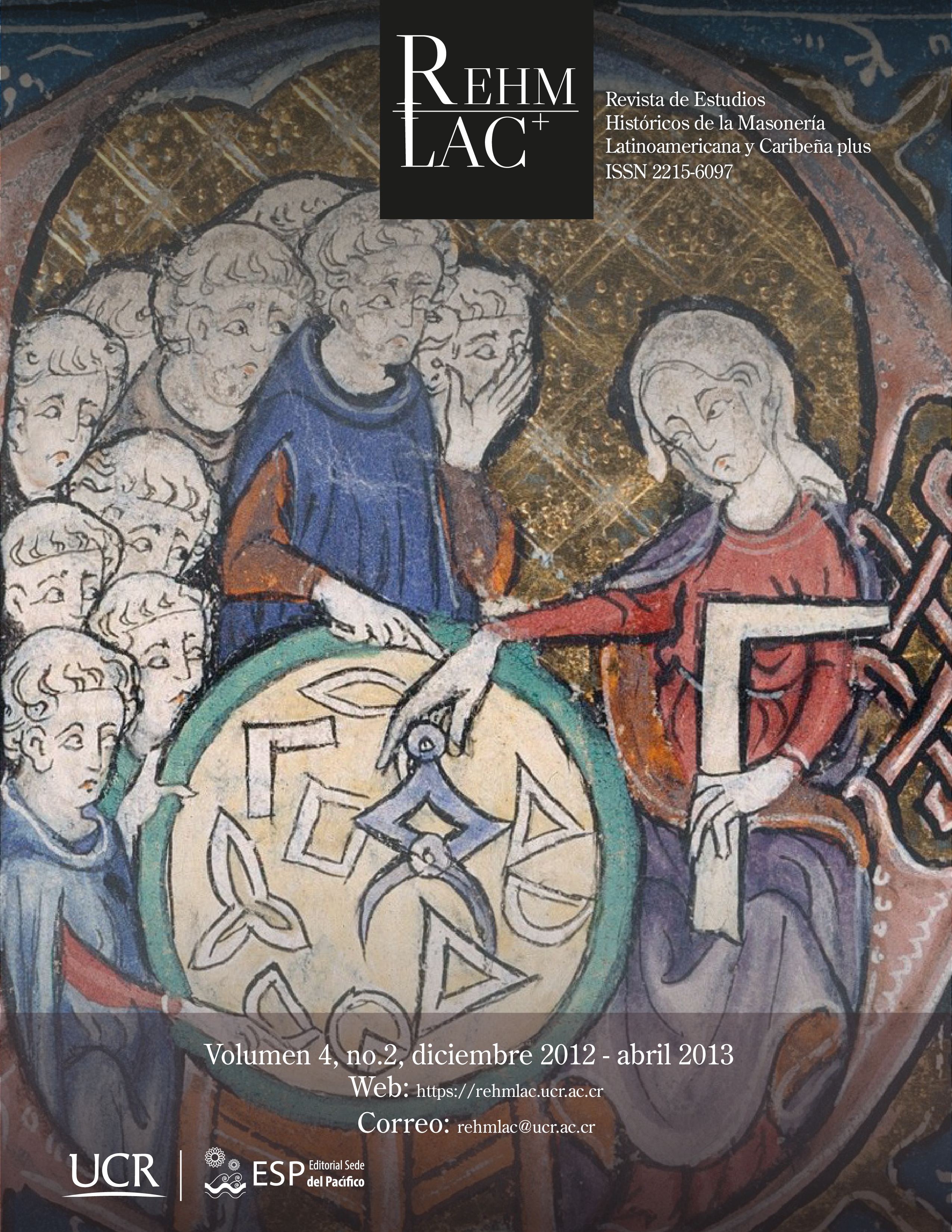Abstract
Cuban Freemasonry from the early nineteenth-century did not consolidate until the seventies, under a colonial slave context. Freemasonry was integrated and then led by social actors who, at the end of the first war of independence (1868 - 1878), in the current autonomous state sought a new political path. Their progressive nature led them to ask questions about, Masonic and secular life, the situation of the marginalized social groups and also to reflect on their integration not only in the area of civil society but also in Freemasonry. The initiation of women and blacks became a concern for those architects of Freemasonry in search of an identity and international recognition. This process is characterized by a desire for social reform and some progressive policies while applying rules that followed the Masonic principles of regularity.##plugins.facebook.comentarios##

This work is licensed under a Creative Commons Attribution-NonCommercial-ShareAlike 4.0 International License.
Copyright (c) 2009 Revista de Estudios Históricos de la Masonería Latinoamericana y Caribeña
Downloads
Download data is not yet available.

